Why Systems Thinking? Why Now?
We live in a complex, ever-changing world. Critical thinkers who approach challenges thoughtfully and skillfully will determine the success of current and future generations. The language, habits and tools of systems thinking help leaders create systems that intentionally provide for the diverse and challenging needs of today’s citizens and prepare children for prosperous futures.
There is no better time to intentionally build the systems thinking capacity of leaders to develop local, state and regional systems as organizations that learn and adapt toward ongoing progress and improvement.

A Little Bit About Us
The Waters Center for Systems Thinking is an internationally recognized leader in systems thinking capacity building.
We are dedicated to providing the tools and methods that help people understand, track and leverage the connections that affect personal and professional goals.

We’re all about delivering benefits and working with others to help them do the same — whether it’s in a classroom, school, district, business or community, systems thinking helps people of all ages and walks of life see beyond the heart of a problem to find equitable and lasting solutions.
Our leadership team is made up of former school administrators and educators. We’re passionate about what we do and we have fun doing it.
We have worked with more than 800 schools and 30,000 educators worldwide to build systems thinking capacity.

Our Mission
Our mission is simple: to make the world a better place.
This goal may sound lofty, but that's the power of systems thinking — a shift in perspective, a new habit, or the identification of a leverage point can make a profound difference and produce positive change.
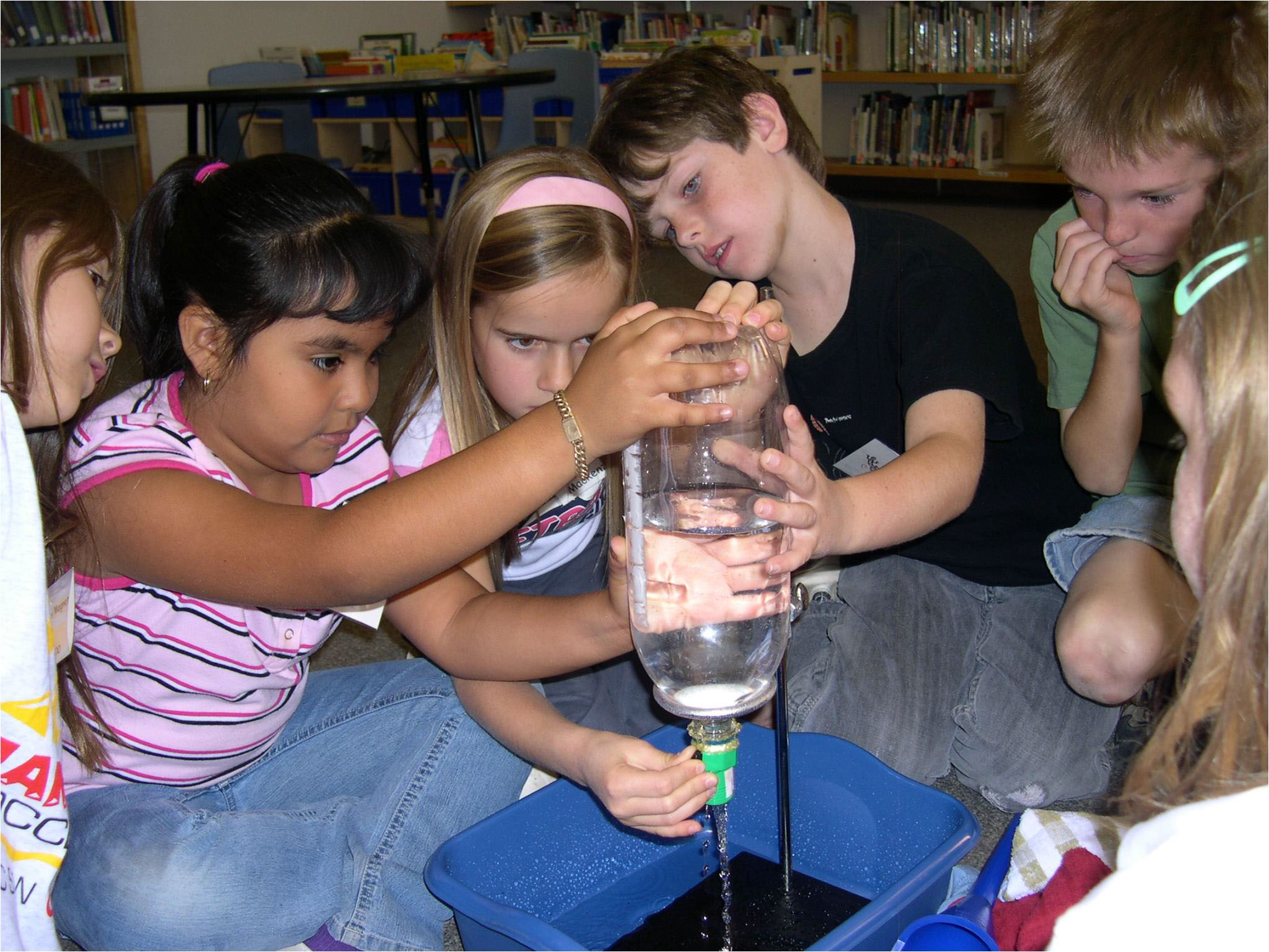
And the change is both immediate and long-lasting.
For example, by helping a school implement systems thinking, teachers develop innovative and engaging ways to relay information and develop young minds.
This will build the critical thinking skills and confidence of students.
These students will apply this thinking with gusto throughout their lives and careers to solve some of our world’s toughest challenges — some of which are so advanced, we’re not exactly aware of what they are yet.
Regardless, these minds will make a difference. And we are honored to play a role.

We get this a lot.
Let's start by understanding systems.
A system can be a district, school, classroom, department, community, government, family, team — the list goes on and on. Systems like these are perfectly designed to produce the results they get.



System structure involves the ways various parts work together and affect one another.
Much like when a mechanic makes adjustments to a car, adding new parts and fine-tuning engine components to ensure maximum performance, leaders and team members must understand the many parts of their system and how they work together.
Referencing a family system is another way to show system structure: parenthood does not come with a manual. Instead, parents are constantly learning, adapting and assessing their parenting styles to influence the way their child interacts within the family and the world at large. For example, recognizing a child's positive behavior will likely lead to continued positive behavior.
The interconnected parts of a system can involve people (e.g. relationships, attitudes, expectations, motivations) and things (e.g. curriculum, policies, schedule, budgets). The design of how these parts relate to one another is a system's structure. And in short, a system’s structure generates its behavior.
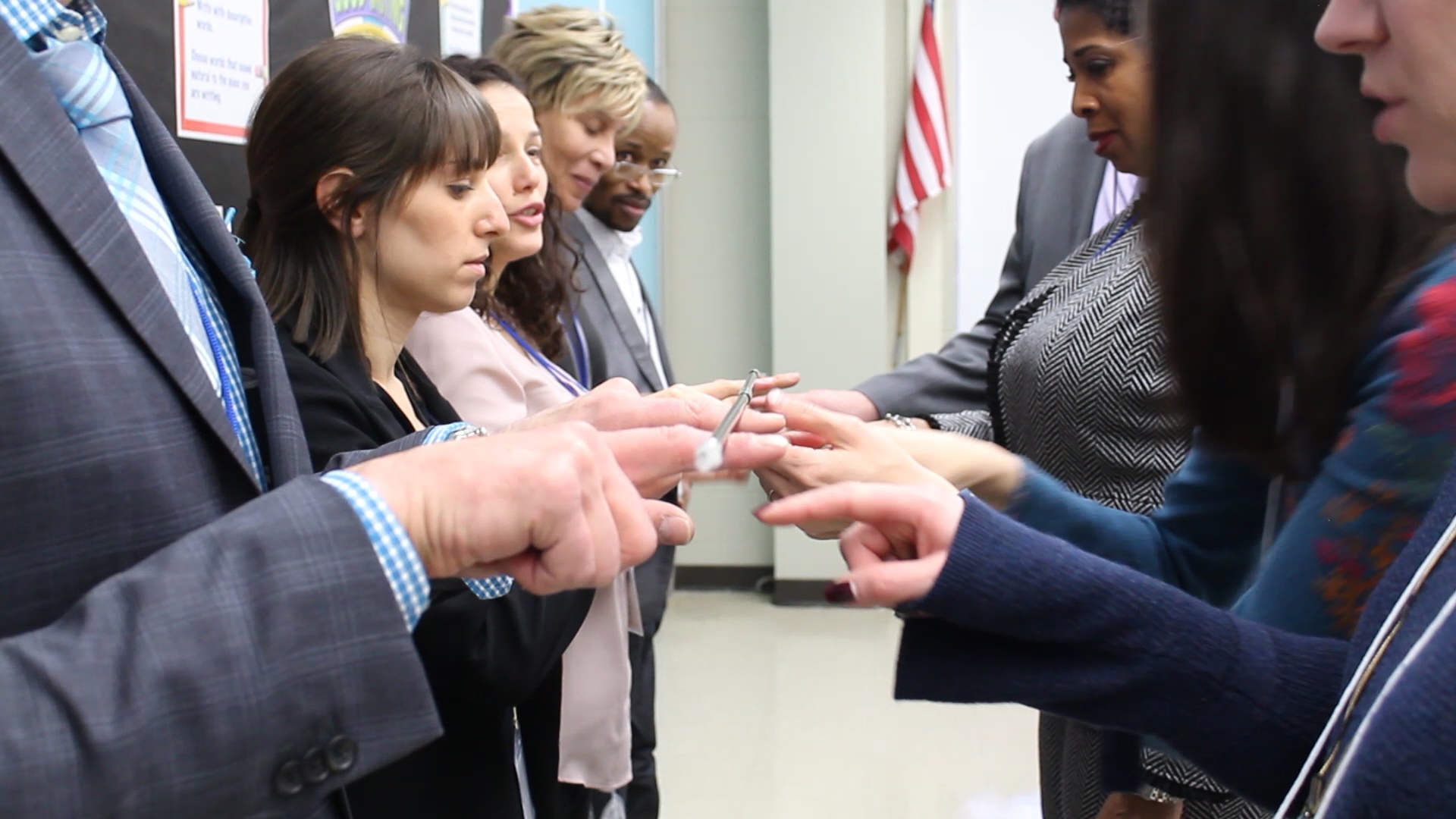
Understanding system structure is not a solo venture. It takes the perspectives of all stakeholders to truly understand and communicate how structure produces actions and outcomes.
It’s a multifaceted, complex, and sometimes daunting process.

Tools to Help You THINK
Our Approach
To begin, we provide a common language that makes understanding and talking about systems accessible for all. The 14 Habits of a Systems Thinker describe what it means to become a systems thinker and inspire shifts in thinking that influence day-to-day behaviors.
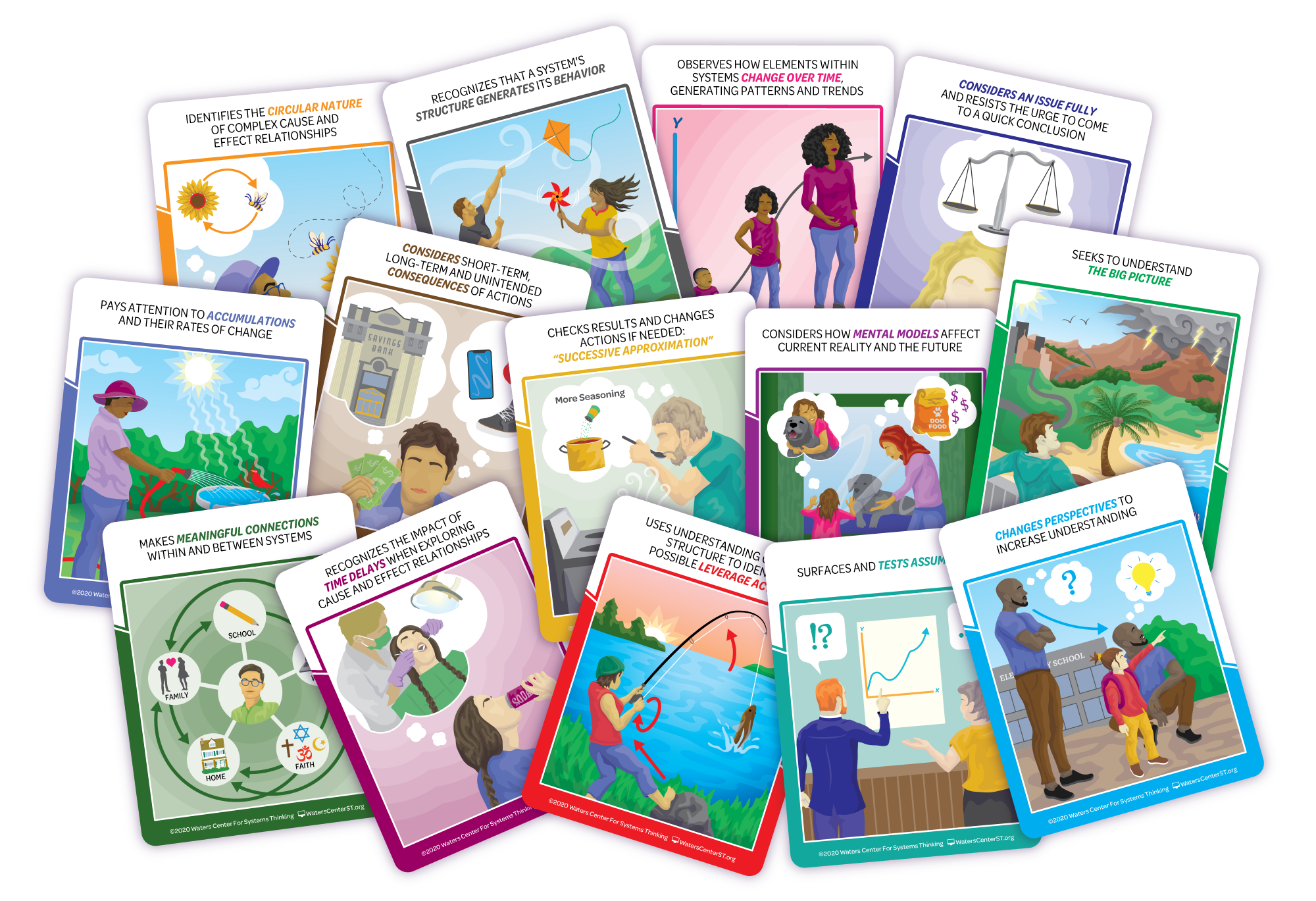
Habits of a Systems Thinker
They’re called “habits” because they’re just that — it takes consistent practice and use of these concepts to make them a part of how members of a system operate. Some of the 14 Habits include:
- Changes perspectives to increase understanding
- Considers how mental models affect current reality and the future
- Seeks to understand the big picture
- Considers short-term, long-term and unintended consequences of actions
From kindergarten students to Fortune 500 company CEOs, our Habits of a Systems Thinker resources have proven to be useful and beneficial in any kind of system and for any kind of learner.
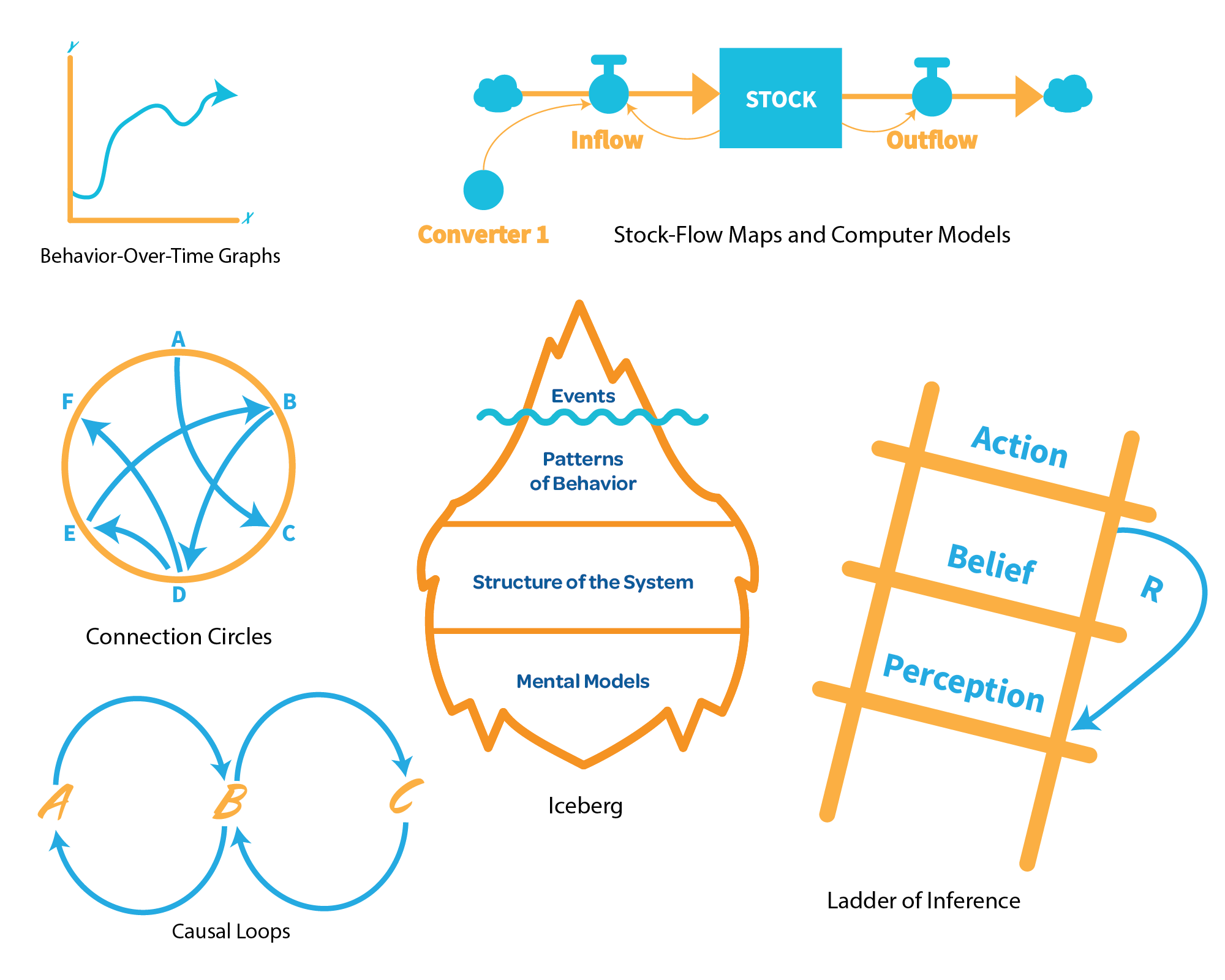
Tools of a Systems Thinker
We also utilize a variety of visual tools that deepen understanding of systems and the results they produce.
Some of these tools include:
- Behavior-over-time graphs
- Causal loop diagrams and archetypes
- Connection circles
- Stock-flow maps

Whether it’s a student creating a Behavior-Over-Time-Graph to analyze change in a literary work, a manager using the Ladder of Inference to understand how certain mental models affect how she/he leads employees, or a teacher using a Causal Loop Diagram to explore how positive relationships influence student behavior, the uses and benefits of these tools are endless and highly adaptable.
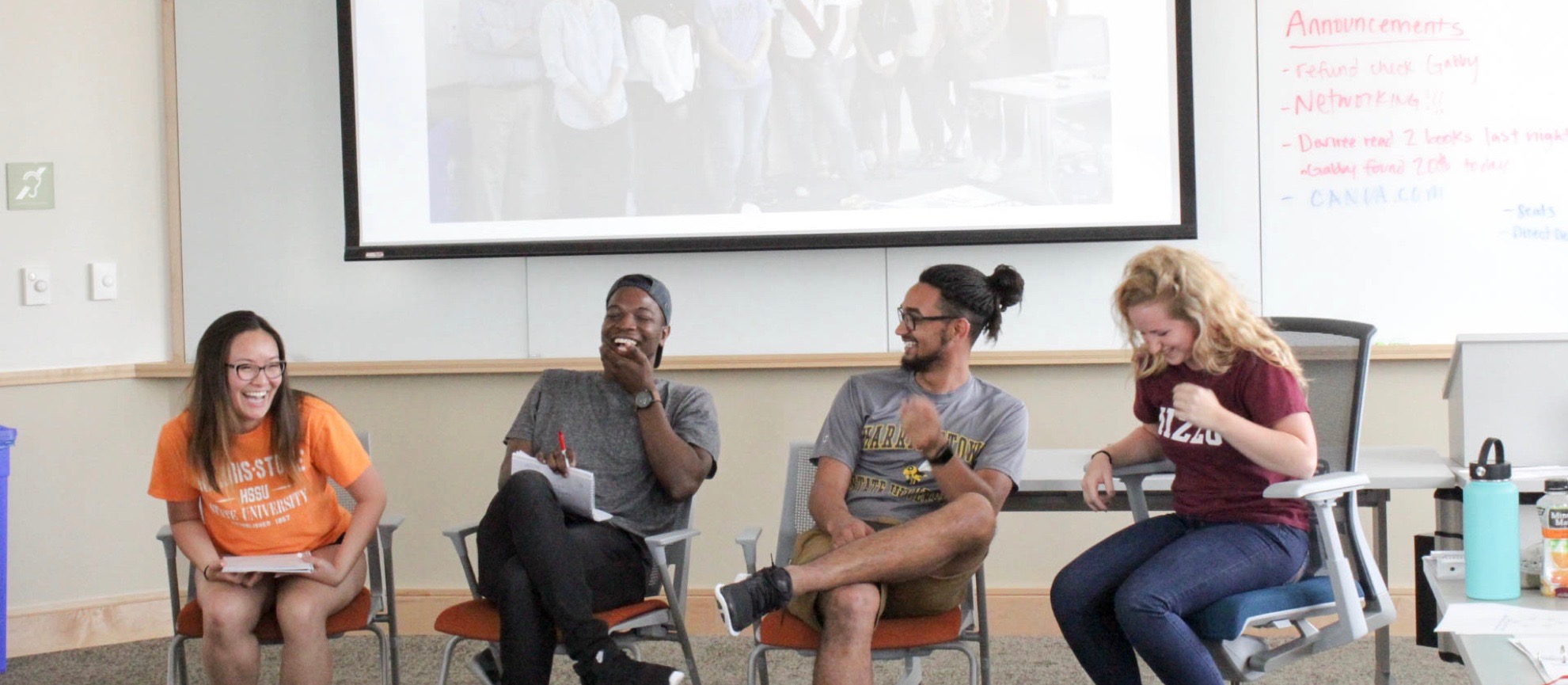
How We Work
We know the best type of learning isn’t linear. We also know that not everyone learns in the same way. That’s why our approach combines visual mapping tools, collaborative processes, and hands-on activities to maximize capacity building for learners of all types and of all age groups.
We also know that every organization is not the same, so we don’t believe in a one-size-fits-all approach to systems thinking coaching and integration. Core to our approach is the development of customized training that you and your organization or district need.
We pride ourselves on getting to know your organization, team,work style, challenges, successes, goals and desired outcomes.
We also believe in a hands-on approach. That’s because studies have indicated that people remember 20% of what they hear, 50% of what they see, and 80% of what they do.

Whether it’s a full-fledged Systems Thinking Adoption and Integration Plan, ongoing coaching and support structures, systems thinking workshops, Systems Thinking Institutes or online learning opportunities, the Waters Center approach recognizes the unique needs of every member of an organization’s system.
Learn more about our services
We form a solid relationship with everyone we work with, and the relationships we build go beyond the length of a project.
Even though we'd like to work with you indefinitely, that's not how we operate. Instead, we're committed to collaborating with you and your staff until you have the skills and confidence to carry on the systems thinking work after our time together has come to an end.


Our Network
We look at every person and entity we work with as a partner, and an important part of a network that is committed to making positive change through systems thinking.
As a testament to the far-reaching benefits of systems thinking, we have worked with a wide-range of schools, districts, businesses, community organizations, government agencies and more.
Here are just a few examples:

W.K. Kellogg Foundation
Grant-funded Project: Waters Center — Systems Thinking in School CommunitiesJuly, 2017 – December, 2019
Highlights:
- Over 90% of the 150 teacher and leader participants showed evidence of active ST applications to classroom instruction, and school and district leadership.
- Teachers and administrators in both regions reported significant student engagement and depth of knowledge when applying ST Habits and tool.
- Inter and intra-school and district collaborative structures in both regions support ST learning that encourages ongoing professional, collegial relationships and learning opportunities.
- Over 150 artifacts of ST applications created by students, teachers and leaders have been collected throughout the first 6 months of the project and will be incorporated into an e-library of resources for all district members.
- Learning partnerships have developed between participating districts and other organizations interested in ST at each region including, Auburn University (AL), Kentucky Valley Education Cooperative (KVEC) and Central Kentucky Head Start.
- Began working with Facilitators-in-Training (FiTs) in Jan 2019. The FiTs process involves a small group of teachers and leaders in workshops, coaching, collaboration, facilitation responsibilities, etc. During the FiTs' apprenticeship time, they help others develop the capacity to effectively design and use applications of systems thinking. There are currently 7 FiTs in AL and 5 in KY.

United Way of Tucson and Southern Arizona
The Great Expectations for Children and Families program is nationally recognized for its communities of practice focused on improving the quality of early childhood education and teacher qualification and professional development.Highlights:
- The Waters Center provided the initial two-day training in systems thinking that laid the foundation of the Great Expectations initiative.
- The initial training for leaders of the various communities of practice was focused on using the tools of systems thinking to help them as an organization, including: creation of a work plan, documentation of progress, making systems changes and bringing stakeholders together.
- After building sufficient capacity, practitioners are not fully dependent on the Waters Center and are now conducting the ongoing professional development in systems thinking.

Catalina Foothills School District
A district serving 5,200 students in suburban Tucson, AZHighlights:
Catalina Foothills School District (CFSD) has applied systems thinking (ST) in both the classroom and organization since 1989, being the first Waters Foundation (now Waters Center) project. The district has embedded ST concepts as appropriate throughout its curriculum and has been a demonstration site in partnership with the Waters Center, rather than a project, since 2011. The district’s community chose to include ST as one of the deep learning proficiencies they see as essential to deep learning for all students (along with citizenship, critical thinking and problem solving, creativity and innovation, communication, and collaboration). CFSD has numerous structures that keep ST learning alive for their staff and students:
- Internally-conducted Waters Center Systems Thinking Level 1 and Level 2 workshops during the school year that are facilitated by Waters Foundation Associates
- ST learning sessions during administrative meetings
- ST as a component of school improvement plans
- Staff-generated rubrics for the ST deep learning proficiency
Other members of our network include:
- National Governors Association, USA
- Borton Magnet School, Tucson, AZ
- City High School, Tucson, AZ
- Pima County School Superintendent’s Office, AZ
- Sunnyside Unified School District, Tucson, AZ
- Twin Rivers Unified School District, Sacramento County, CA
- Disha India Education Foundation and the Heritage Schools, Gurgaon, India
- Systems Thinking Association, Turkey
- W.K. Kellogg Foundation (Grant-funded Project, Systems Thinking in School Communities in Kentucky and Alabama)
- The Center on Enhancing Early Learning Outcomes (CEELO)

“Systems thinking and the work of the Waters Center has promoted deeper thinking and learning at my school. I’ve found that teachers can better facilitate critical and visual thinking in students, and work with multiple perspectives in an organized fashion. I’ve seen that students can better justify and explain content. Systems thinking not only stretches thinking, but it also simplifies it in the most beneficial way.”
— Bonnie Short, Principal, West Smiths Station Elementary School, Lee County Schools, Alabama“The Waters Center has been instrumental in helping United Way of Tucson and Southern Arizona create, as part of a large early childhood professional development grant, a complex, multifaceted system that has improved outcomes for teachers, children and families. Our partnership with the Waters Center has helped me hone my own systems thinking skills. I see systems thinking as something that should be introduced to young children in order to create and strengthen their reasoning and problem solving skills. The Waters Center is leaving a legacy of a new generation of thinkers and leaders who understand how decisions and actions impact systems and people, both over the short-term and for years to come.”
— Naomi Karp, Senior Director of Early Childhood Professional Development at United Way of Tucson and Southern Arizona"Systems thinking (and the Waters Center) has provided the opportunity for Twin Rivers Unified School District employees to develop new skills and behaviors to resolve long-standing issues that have historically impacted student achievement. Also, it has repurposed how and why we deliver services to schools and students and the role each of us play in student/teacher success. Without a doubt, systems thinking has accelerated the process in building capacity in the system for all staff.”
— Dr. Steven Martinez, Superintendent, Twin Rivers Unified School District
Benefits of Systems Thinking
The benefits of systems thinking are ongoing and have a ripple effect. For example, one small change in a school can have a huge impact on a community.
By applying the Habits, concepts and tools of systems thinking, users gain a deeper understanding of systems around them and move closer to achieving their highest performance.
Systems thinkers have a sharpened and clarified understanding of how systems actually work. Confusing, disconnected snapshots of life start to make more sense when understood as patterns of change over time.
Much like the practice of systems thinking, the benefits are also not linear, but broad. For example:
- Students become engaged and empowered
- Educators are energized by success
- Businesses and employers gain a pipeline of high-efficacy talent
- Communities form around mature thinkers
Repeatedly, we see that an initial investment in the time to learn and practice the habits and tools of systems thinking delivers benefits, including:
- Positive and productive shifts in organizational culture
- Creative and innovative approaches to leadership
- Improved communication and collaboration skills
- High and clear expectations
- Decision-making and problem-solving approaches that maximize benefits to the system
- Measurable results related to key performance indicators
- Organizational effectiveness and efficiency
- Social and emotional wellness

The benefits of such approaches are both immediate to the development of professional capital and long-lasting for thriving communities that place the needs of children at the core.
Benefits specific to education include:
- Increases student engagement and fosters a learner-centered environment
- Enhances an educational environment that is cooperative, interdisciplinary, and relevant
- Facilitates the integration of rigorous thinking in instruction, which is key to achieving proficiency
- Correlates to 21st century skills, STEM goals (e.g. NGSS), and curriculum standards
- Provides structure for social and emotional development, leading to students who self-manage, form and maintain healthy relationships, and make informed decisions when facing challenges (resulting in a decrease in disciplinary problems)
- Provides a common language and a set of tools that facilitate collaborative problem-solving

Let’s connect to find out how we can help you, your team, and your organization reach its desired outcomes.

Thanks for stopping by!
Image Credits:
Created with images by PublicDomainPictures - "splashing splash aqua water rain pouring photo" • GuillaumePreat - "planets sun earth galaxy sky space night" • rawpixel - "Planning a trip over coffee" • geralt - "system web network" • NeONBRAND - "untitled image" • Yulia Chinato - "Millennium Bridge in London" • rawpixel - "untitled image" • seuhuangziyao0 - "pencil line plain white" • Carl Raw - "What rhymes with orange?" • RaphaelJeanneret - "to write girl child schoolboy student notebook" • rawpixel - "african bangkok business" • Kirill - "Ibiza, I See You" • Edouard Ki - "Overpasses from above" • Hans - "milwaukee wisconsin metropolis city usa united states" • Sebastien Gabriel - "Exploring From Above" • crazy_lch - "flower cactus summer" • Amritanshu Sikdar - "untitled image" • Serkan Turk - "untitled image" • rawpixel - "untitled image" • Corinne Kutz - "Working Hands"
